The COVID-19 pandemic has dealt a crushing blow to businesses and societies around the world. But the spirit will triumph, and a range of entrepreneurship support organisations has risen to the challenge.
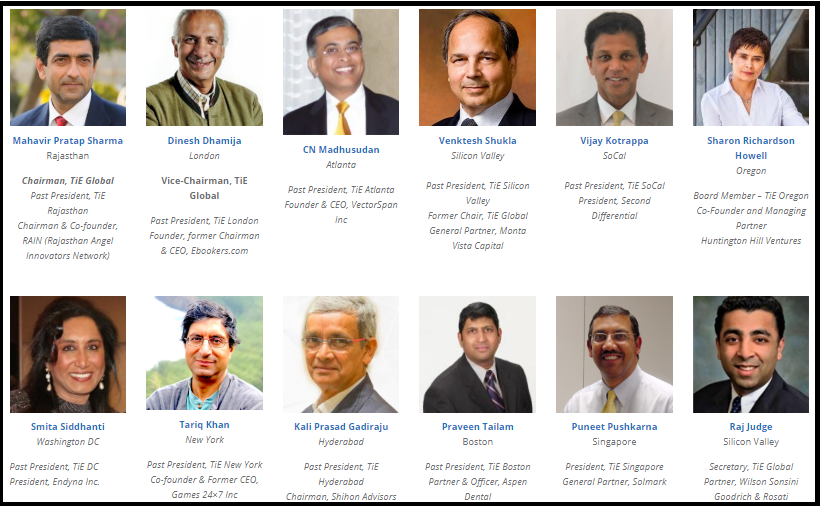
TiE Global - Board of Trustees
This includes TiE Global, the nodal hub of the global network called The Indus Entrepreneurs, founded in Silicon Valley in 1992. See also our earlier profiles of resilience activities by TiE Bangalore, TiE Silicon Valley, TiE Pune, TiE Kerala, TiE Hyderabad, and TiE Kolkata.
The TiE Global story
“TiE was started in Silicon Valley in 1992. That was the only chapter till 1998, when TiE chapters in Boston, Los Angeles, and Seattle were started,” explains Vijay Menon, Executive Director of TiE Global, in a chat with YourStory.
“In 1999 we started three chapters in India: in Delhi, Bengaluru, and Mumbai. That was when the need for a separate organisation to work with all chapters was felt,” he adds.
Based on the recommendations made by the late management guru Prof. CK Prahalad, TiE Global was set up in 2000. It is a nodal hub for all global chapters, as well as a virtual hub for cities where there is no chapter as yet. There are now 61 TiE chapters in 14 countries, with over 15,000 Charter Members.
“TiE Global accepts virtual memberships from geographies where we do not have a TiE chapter. We call it virtual because the connect for the member is not through a physical chapter,” Vijay clarifies.
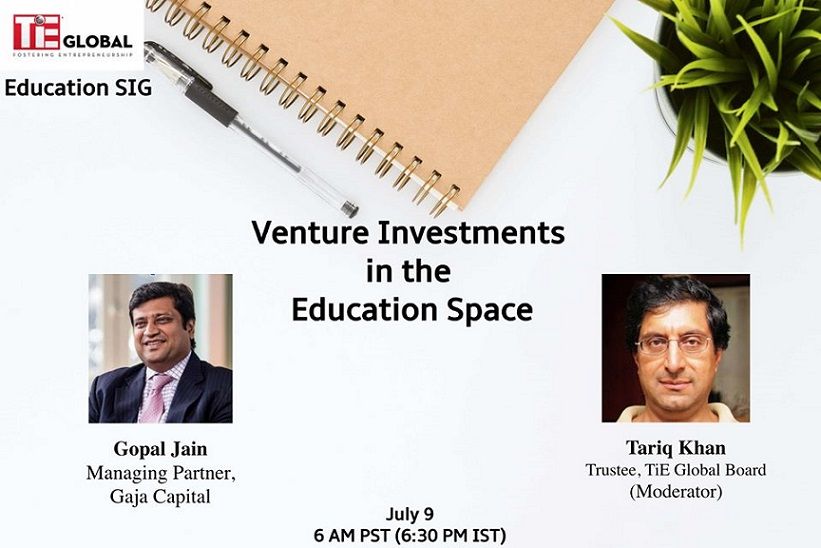
Support for entrepreneurs
The global network of TiE chapters collectively conducted over 500 events online in the last four months of the pandemic crisis. “We have had over 50,000 unique attendees at these events,” Vijay proudly says. The online events spanned mentoring sessions, domain-specific deep dives, education sessions, pitches, panel discussions, and expert talks.
The number of attendees typically ranged from about 75 to as high as 5,000, with global audiences for most events. The profile of attendees was 60-70 percent entrepreneurs and those interested in entrepreneurship. The rest consisted of corporates, investors, academics, thought leaders, and other professionals.
The speaker lineup included Vinod Khosla, Amitabh Kant, Jagdish Sheth, Sadhguru Jaggi Vasudev, Deepak Chopra, Sri Ravishankar, Smriti Irani, Kiran Mazumdar Shaw, Eric Yuan, Indira Nooyi, Ariana Huffington, and Rajan Anandan.
“In the US, TiE Angel Groups have evaluated over 150 companies in the last four months and invested over $4 million in early stage startups,” Vijay says. Global programmes like TiE Young Entrepreneur (TYE, for high school students), TiE University (college level), and TiE Women were conducted virtually, along with a chance to pitch and win awards or investment.
Separately from the individual chapters’ activities, TiE Global has held events only for the Special Interest Groups (SIGs). They include about 15 events in areas like healthcare, fintech, edtech, and sustainability. There were also five events focussed on iconic speakers.
TYE (for high school students) was launched in 2008 and 30 chapters ran this programme in 2020. TiE University (earlier called TISC, or TiE Startup Challenge) was launched in 2012 and 18 chapters ran this program in 2020. TiE Women was launched in 2019 and 26 chapters are running this program in 2020, according to Vijay.
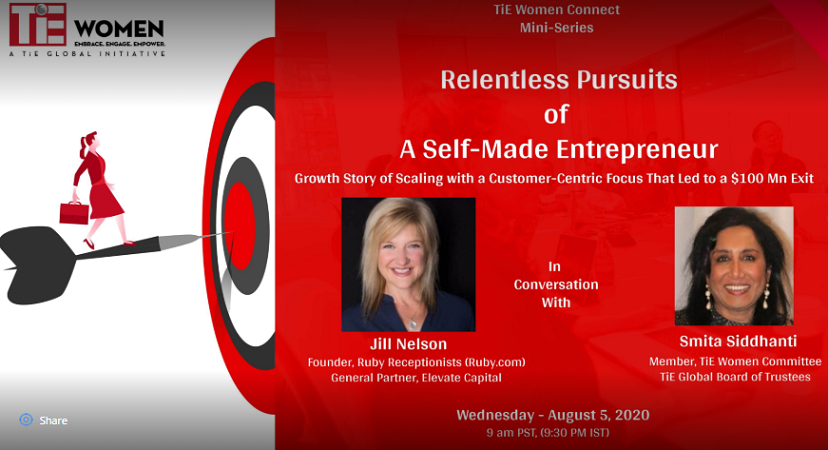
Challenges
The top three challenges entrepreneurs have faced in the months of the pandemic are the ‘3 Ms’ - Money, Markets, and Mentoring, Vijay describes. “TiE is uniquely positioned to offer mentoring. Our Angels invest in early-stage startups, and many of our Charter Members who are from VC firms participate in follow-on rounds,” he adds.
For market access, there are programmes where select startups with global ambitions are connected to potential customers in the US, India, Europe, Middle East, and South East Asia. “For our Charter Members (CMs), we have launched 10 global Special Interest Groups (SIGs) where they are able to connect with CMs across the world,” Vijay says.
This helps them to do business and invest together. “We also have a tie-up with the Opportunity Network (ON), where our CMs have access to over 30,000 ON members worldwide and deals posted on the platform,” he adds.
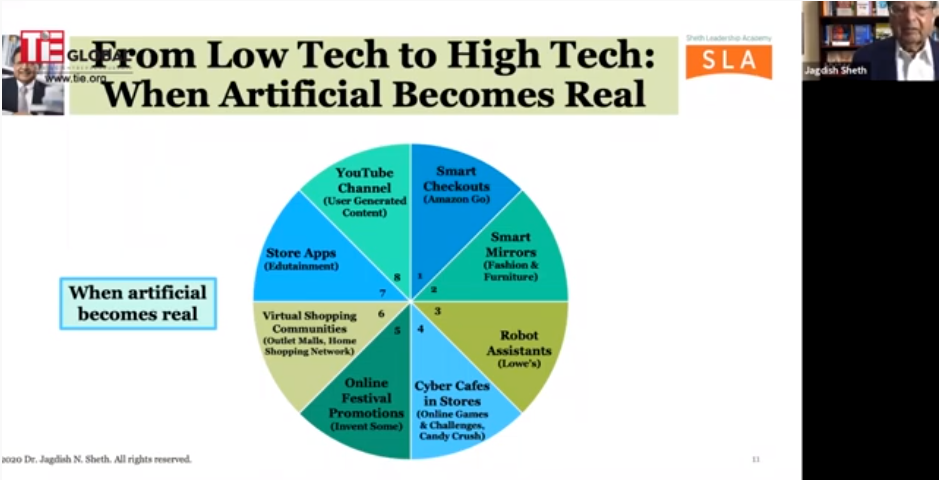
Professor Jagdish Sheth - "Will Retailing Survive the COVID crisis?"
Opportunities
Despite the pandemic challenges, some sectors have really gained. These include edtech, healthcare, entertainment, and gaming. “We have seen many of our members in the edtech space grow their business multiple fold,” Vijay says, citing Karl Mehta of EdCast and Satya Narayan of Career Launcher as examples.
“Many of our members are in the space of healthcare services, devices, and products. They have seen business increase during this pandemic. Many of our CMs in the entertainment domain have seen a large increase in content sourcing as well as users in the gaming segment,” he adds.
There are also tectonic shifts happening in the way people work, live, and commute. “This throws up opportunities in areas like WFH products, affordable suburban housing, personal transportation, food delivery, and the like,” Vijay says.
Role of government
“I think most governments across the world are focussed on helping the bottom-of-the-pyramid citizens survive this period. They see a social problem emerging, we are already seeing signs of that with the protests in the US,” Vijay explains.
Governments are supporting small, medium, and large businesses (SMBs) to survive over the next 12-18 months and restart quickly once the situation improves. “A lot of governments also want to reduce over-dependence on other countries for manufacturing pharma, healthcare and other critical products,” he adds.
There will be more support for local industry as a result. “This throws up huge opportunities for entrepreneurs - both to serve the bottom of the pyramid customers, as well as in critical areas where countries want to be self-sufficient,” Vijay says.
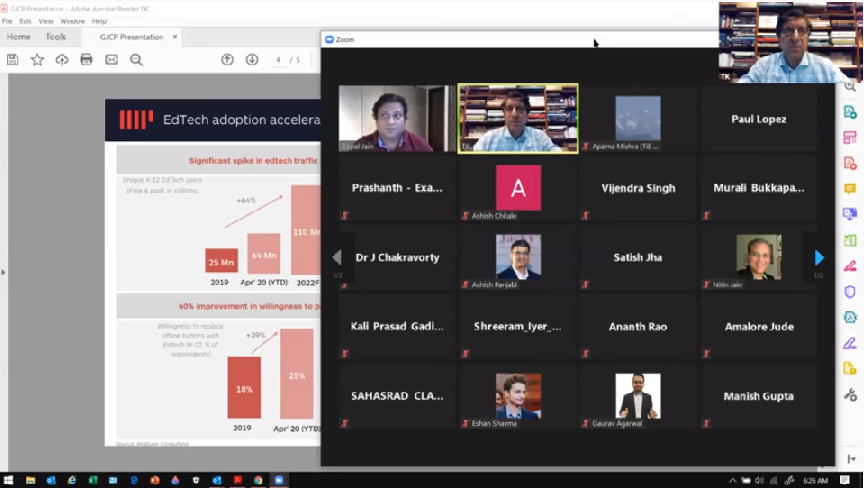
Education SIG - "Venture Investments in the Education Space"
Upcoming activities
TiE Global has a small team of three to coordinate activities, and has outsourced some tasks like digital marketing and programme management. Vijay Menon has been the Executive Director of TiE Global for four years, with Mohini Suchanti as Programme Manager and Aparna Mishra as Manager for Marketing and for the TiE Women programme.
Upcoming activities planned this year by TiE chapters around the world include India Internet Day of TiE Delhi (August), TiEcon 2020 of TiE Silicon Valley (September), TiEcon Atlanta (September), TiEcon Chennai (October), IoT Forum of TiE Bangalore (November), TiE Global Summit in Hyderabad (December), and TiE Women Global Finals in Dubai (January 2021).
The annual TiE Charter Member Retreat will be organised virtually this year. It was originally meant to be held in Almaty, Kazakhstan, in July, but was cancelled due to the pandemic.
The 2019 edition was in Dubrovnik, Croatia, and the 2018 edition was in Prague. Over the years, 21 CM retreats have been held, with earlier ones in Athens, Dublin and Bali.
Four editions of the TiE Global Summit (TGS) have been held as well. The first (2016), second, and fourth editions were in New Delhi, while the second edition was in Mumbai. The fifth TGS was scheduled for Dubai this year, but will be hosted by TiE Hyderabad as a virtual event in December. TiE Dubai will host TGS 2021, along with and as a part of the World Expo.
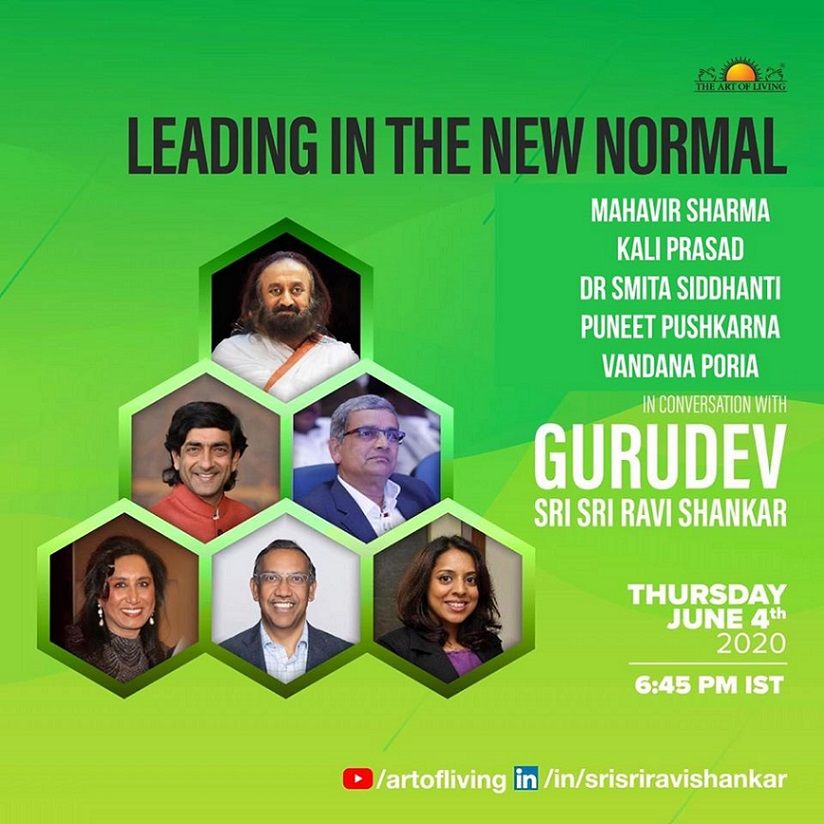
Tips and advice
The TiE Global team offers tips for entrepreneurs on business operations and mental fitness. “Cut down on offices and travel, look carefully at your manpower costs, and ask everyone in the organisation to take a lower package, starting at the top,” Vijay advises.
“Reach out to all your customers for additional business even at lower margins, but with shorter payment cycles for cash flow. Raise money if you have to with a bridge or down round,” he adds. Governments are also offering incentives and disaster loans in some cases.
“In the short term, build features or functionality, which a customer will pay for. Keep the good- to-have features for the medium or long term,” Vijay recommends. Product functionality for the new norm of “touchless” and “social distancing” in the post-Covid world is key.
Mental and physical fitness are core concerns as well. “Plan your day and include some time for physical activity (at least 45 minutes), and meditation (15 minutes). Set aside some time for recreation,” he emphasies.
Working from home can blur the lines between home and office. “It’s important to keep personal time aside. Also, use any spare time to learn some life skills like cooking, playing a musical instrument or new game, or a new language,” Vijay signs off.
(Edited by Megha Reddy)
Want to make your startup journey smooth? YS Education brings a comprehensive Funding Course, where you also get a chance to pitch your business plan to top investors. Click here to know more.
Link : https://yourstory.com/2020/08/tie-global-coronavirus-startups-resilience
Author :- Madanmohan Rao ( )
August 06, 2020 at 09:55AM
YourStory


